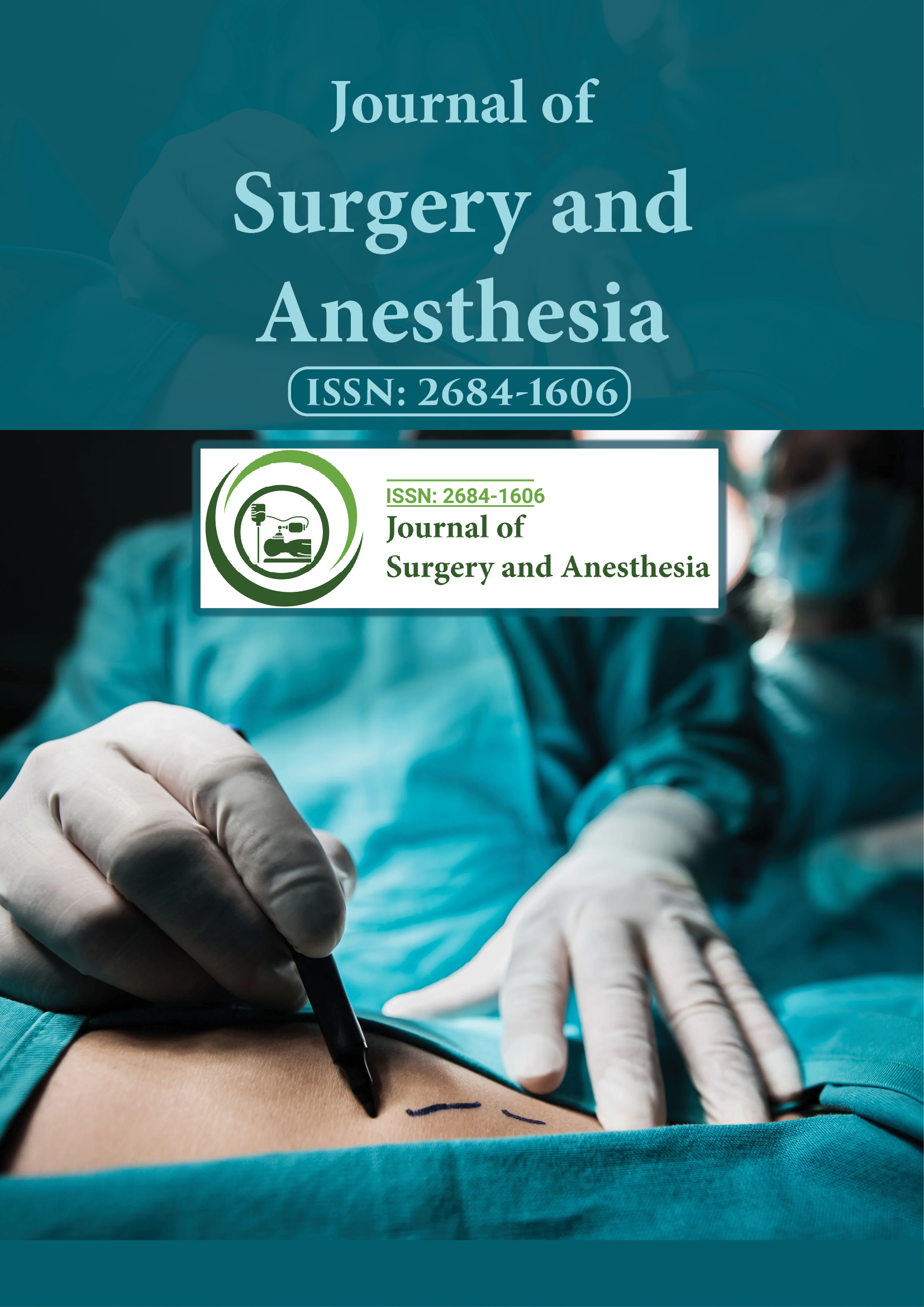Indexed In
- Google Scholar
Useful Links
Share This Page
Journal Flyer

Open Access Journals
- Agri and Aquaculture
- Biochemistry
- Bioinformatics & Systems Biology
- Business & Management
- Chemistry
- Clinical Sciences
- Engineering
- Food & Nutrition
- General Science
- Genetics & Molecular Biology
- Immunology & Microbiology
- Medical Sciences
- Neuroscience & Psychology
- Nursing & Health Care
- Pharmaceutical Sciences
Editorial - (2021) Volume 5, Issue 6
Editorial Note on Complications of Colorectal Surgery
Andrew S Tyler*Received: 05-Nov-2021 Published: 26-Nov-2021
Description
The colon and rectum are hollow tubes that extend from the small intestine to the anus. The length of the colon is about 5-6 feet. The function of the colon is to absorb water and store digestive waste until the body is ready to empty it. The last part of the colon is called the rectum. There is a sphincter in the lower part of the rectum. These muscles prevent the rectum from accidentally contracting. When a person is ready to defecate, the sphincter muscles relax and tension can be used to push the stool out. Colon and rectal surgery is a medical field that deals with rectal, anal, and colonic diseases. This area is also known as proctology, but the term is rarely used in modern medicine and is most commonly used to specifically identify medical practices related to the anus and rectum. Colon and rectal surgery has a higher risk of infection than most other surgical disciplines and is considered an outlier for wound infection. Reducing the incidence of infections, especially Surgical Site Infections (SSI), continues to be a major challenge in colon and rectal surgery. Prevention of SSI includes optimized preoperative patient preparation, perioperative bowel preparation, and strict adherence to antibiotic prophylaxis guidelines, increased intraoperative oxygen supply, wound cleaning, intraoperative normal temperature maintenance, and surgery. It can be achieved in a variety of ways, including later glycemic control. Disorders or abnormalities in the colon, rectum, or anus can cause any of the following symptoms: rectal bleeding, anal pain, anal lumps, itching, constipation, diarrhea, mucous and pus drainage, and abdominal pain. Common colorectal disorders include hemorrhoids or hemorrhoids, anal fissures, anal fistulas, anorectic abscesses, colorectal inflammation, colon cancer, and rectal cancer. If you have any of these illnesses or symptoms, you should consult a specialist for further testing and treatment.
The most common postoperative surgical complications after colorectal resection are surgical site infections, anastomotic leaks, intra-abdominal abscesses, ileum, and bleeding. These complications have different effects on outcomes and must be diagnosed accurately. Assessing postoperative complications is essential to meet certain quality criteria. Many lifestyle factors are associated with colorectal cancer. In fact, the association between diet, weight, and exercise and the risk of colon cancer are the strongest of all cancers. Screening is the process of finding cancer in asymptomatic people. Several tests can be used to detect surgery for colon cancer.
Types of tests for colon surgery
Stool-based tests: These tests check the stool (feces) for signs of cancer. These tests are less invasive and easier to run, but should be run more often.
Visual (structural) tests: These tests examine the structure of the colon and rectum for abnormal areas. This is done either with a scope (a tube-like instrument with a light and tiny video camera on the end) put into the rectum or with special imaging (x-ray) tests.
Any type of colon surgery needs to be done on a clean and empty colon. You will be put on a special diet before surgery and may need to use laxative drinks and/or enemas to get the entire stool out of your colon. This bowel prep is a lot like the one used before a colonoscopy. Surgery is often the main treatment for early stage colon cancers. The type of surgery depends on the stage (degree) of the cancer, where it is in the colon, and the destination of the surgery. It can be difficult to understand the importance of the symptoms you are suffering from. The safest advice is to contact a colorectal surgeon specialist. He or she can evaluate, investigate and advise you accordingly.
Citation: Tyler AS (2021) Editorial Note on Complications of Colorectal Surgery. J Surg Anesth. 6:e163
Copyright: © 2021 Tyler AS. This is an open-access article distributed under the terms of the Creative Commons Attribution License, which permits unrestricted use, distribution, and reproduction in any medium, provided the original author and source are credited.
